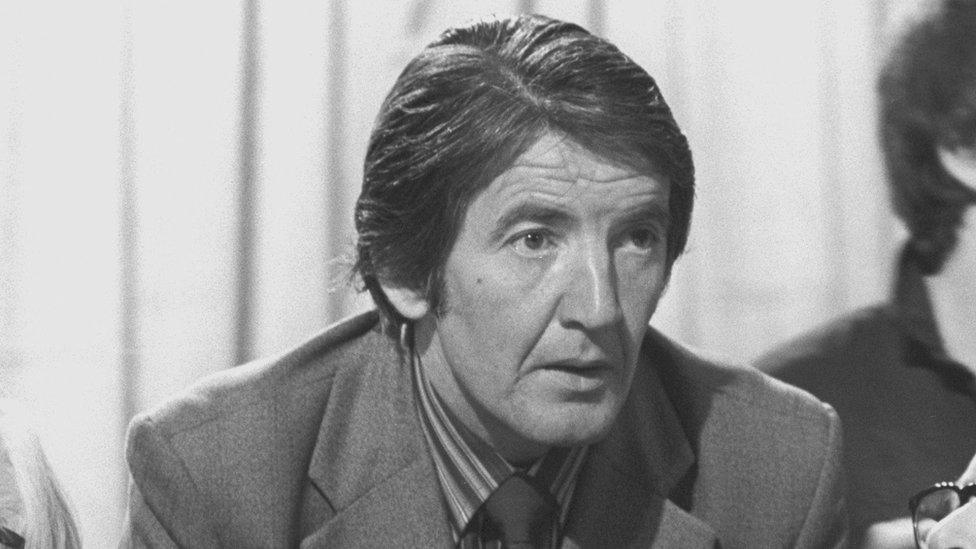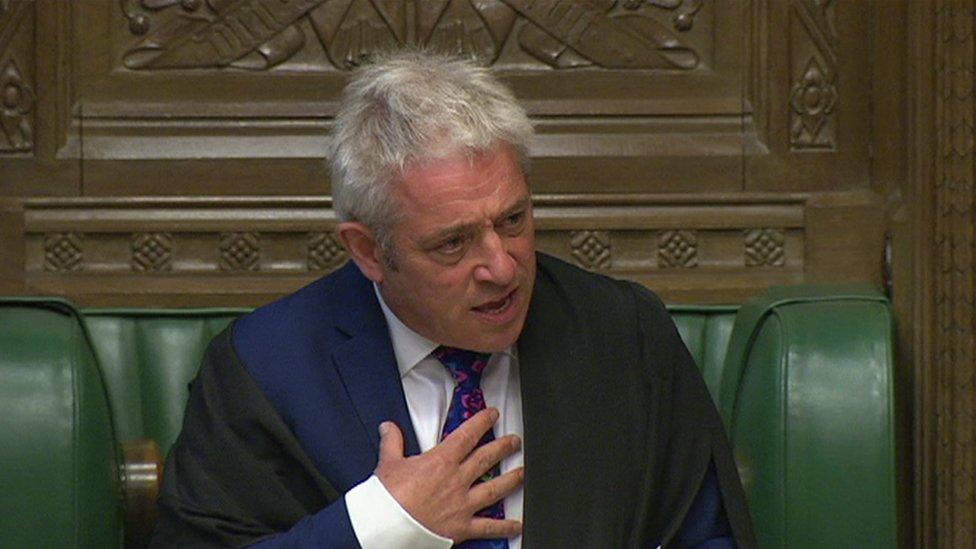Brecon and Radnorshire by-election: The sneaky technique of debating a writ
- Published

What is it about writs - the Parliamentary motion to trigger a by-election - when it comes to Brecon and Radnorshire?
Wednesday's kerfuffle - with Plaid Cymru's Westminster Leader Liz Saville Roberts alleging that the laying of the writ has been delayed so that an incoming prime minister would not be greeted with an embarrassing result on the very day they win the Conservative leadership contest - sent me scurrying to my files.
Rewind 24 years and some virtuoso parliamentary manoeuvring by Labour veteran Dennis Skinner went on around the writ for the previous by-election.
In 1985, Enoch Powell seemed close to pushing his private member's bill to outlaw embryo experimentation through the Commons.
The Unborn Children (Protection) Bill would have made it illegal to create a human embryo by in vitro fertilisation for any purpose other than to allow a woman to have a child.
Mr Powell felt a "sense of revulsion, deep and instinctive" towards the idea that a human embryo should be "subject to experiment to its destruction for the purpose of the acquisition of knowledge".
He seemed to be winning an intricate procedural battle to get his bill through, when Mr Skinner hit upon the device of using up the available Commons time by debating the writ for the Brecon and Radnor by-election at massive length.
'Flash of inspiration'
Normally, the writ for a parliamentary by-election is moved by the whips for the party which holds the seat, without debate.
But a close study of the rules convinced Mr Skinner that he could move the writ and debate it, and that would take precedence over other business.
It was, he said, "a flash of inspiration" going well beyond the ordinary Commons filibuster.
The ploy worked, thanks partly to Speaker Weatherill's indulgence, and partly to the acquiescence of the two front benches, who wanted Mr Powell's bill stopped, but balked at opposing it openly.
The debate was dragged out until it was impossible for Mr Powell's bill to be brought forward - although towards the end the Speaker's patience was clearly fraying.

Dennis Skinner has long been a force for Labour in the Commons
Four years later, Mr Skinner used the same trick again - on the writ for the Richmond by-election - to disrupt an attempt by Ann Widdecombe to make more debating time for a bill to cut the time limit for abortions.
Conservative MPs retaliated by debating the writ for another by-election, at Pontypridd, at length, and eating into the time available for opposition debates.
So, come 1990, the Commons voted to change its standing orders to curtail this particular manoeuvre.
The debate did not produce great parliamentary rhetoric, although there was a lot of reminiscence about former Labour MPs for the area like Caerwyn Roderick and Tudor Watkins.
Mr Skinner and his various allies had to be careful to stay in order and to speak about Brecon and Radnor and the issues which might emerge in the election.
But he himself spoke for about three-quarters of an hour, without straying beyond the rules of order, before his allies continued the debate.
- Published26 June 2019

- Published24 June 2019

